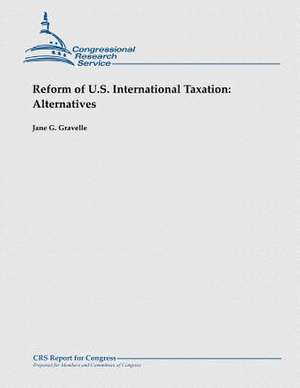Reform of U.S. International Taxation
Autor Jane G. Gravelleen Limba Engleză Paperback
Preț: 87.27 lei
Nou
Puncte Express: 131
Preț estimativ în valută:
16.70€ • 17.43$ • 13.82£
16.70€ • 17.43$ • 13.82£
Carte disponibilă
Livrare economică 14-28 martie
Preluare comenzi: 021 569.72.76
Specificații
ISBN-13: 9781481923743
ISBN-10: 1481923749
Pagini: 30
Dimensiuni: 216 x 280 x 2 mm
Greutate: 0.1 kg
Editura: CREATESPACE
ISBN-10: 1481923749
Pagini: 30
Dimensiuni: 216 x 280 x 2 mm
Greutate: 0.1 kg
Editura: CREATESPACE
